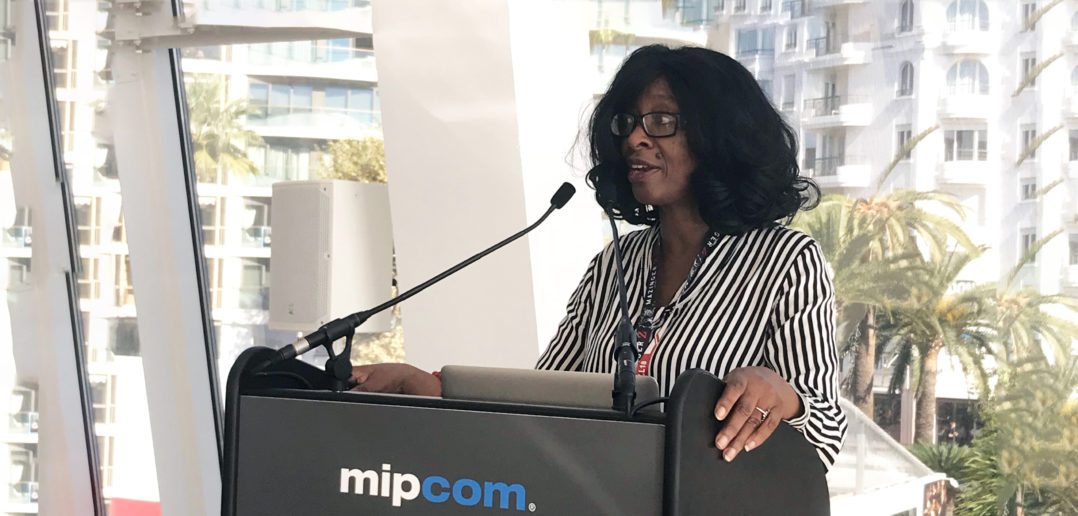Bunmi Akintonwa has worked in the International TV Industry for over 20 years. She is the head of the Little Black Book Company, founder of the UNTAPPED Network, and member of MIP Markets’ Diversity Advisory Board. Today, ahead of MIPCOM 2018’s renewed focus on diversity and inclusion, she shares her views on the subject with MIPBlog.
MIPBlog: This will be the third consecutive year since 2016 that MIPCOM focuses on diversity in entertainment. What progress do you feel has been made since then?
Bunmi Akintonwa: In 2016 Diversity and Inclusion in the Global Entertainment industry was a conversation fuelled by moral imperative and instinctual business sense, but we struggled to find enough valid data to back commercial arguments. Since 2016, discussion has given way to decisive, successful, action and positive, measured results. Diversity and Inclusion are no longer considered redundant buzz words, but an essential part of a basic business and marketing plan. In short, Diversity and Inclusion leads to bigger audiences and more revenue- and this is reflected in the way that this is a now an important part of the MIPCOM 2018 offer. Naming young, dynamic creator, actor & producer Issa Rae as Personality of the Year clearly underlines this message. A panel on development amplifies this, while more entries to the DiversifyTV awards demonstrates the effectiveness of the message.
> What progress remains to be made?
We still need less tokenism and more representation, particularly behind the cameras. More directors, more writers and more executives who understand these untold stories. There are new voices, and those that that were previously silenced – and they need encouragement to stand up, speak out again and be noticed. There is a lot more scope for imaginative co-productions, for instance – some countries have incredible stories. but can’t quite find the budgets to tell them. MIPCOM is a great forum for this. The focus on development this year is a very welcome one.
> #metoo has been the biggest movement in terms of diversity this past year. How has it impacted the TV industry in particular?
We’re definitely seeing a lot stronger of roles for real women in TV. In turn, movie actors have realized that TV is a great way for them to break away from roles they’re tired of playing. Hopefully writers no longer feel compelled to use character descriptions like ‘sexy, young, blonde girl’ when the word ‘woman’ would suffice! And of course, women (and men) no longer have to have shut up and put up any more. All of this will eventually result in better working conditions, attracting more people to the industry and ultimately, more variety on the screen.
> At MIPCOM 2017, Sir Lenny Henry suggested tax breaks for diverse programming were a good way forward. Do you agree?
Yes, I do – companies often fail to meet quotas/mandates and a financial incentive to work a little harder can only help. It’s encouraging to see the work that bodies like the BFI are doing to improve diversity.
> Are all sectors of diversity progressing at a similar rate, or are some doing less well?
We definitely need to work harder with disability. Again we need more creatives to tell the stories and more execs to guide them. At MIPCOM, now that we have our eyes open and we’re looking, we see that these execs are missing.
> How diverse do you hope TV will be by 2020? What would it take to get there?
Today, platforms and distribution methods are so sophisticated that we can hit global or, global niche audiences instantly. Leaving anyone out is therefore missing a potential revenue source. By 2020, I hope that TV content financiers (commissioners, investors, sponsors etc) have realised this, and insist that content must be made for an audience that reflects the world we live in! It’s taken us so long to work this out – but it’s really the only way that makes sense. I hope we also find a more effective way to find and promote excellent talent and content. I don’t think we’ll be there by 2020 – but I think it will at least be on everyone’s agenda.




